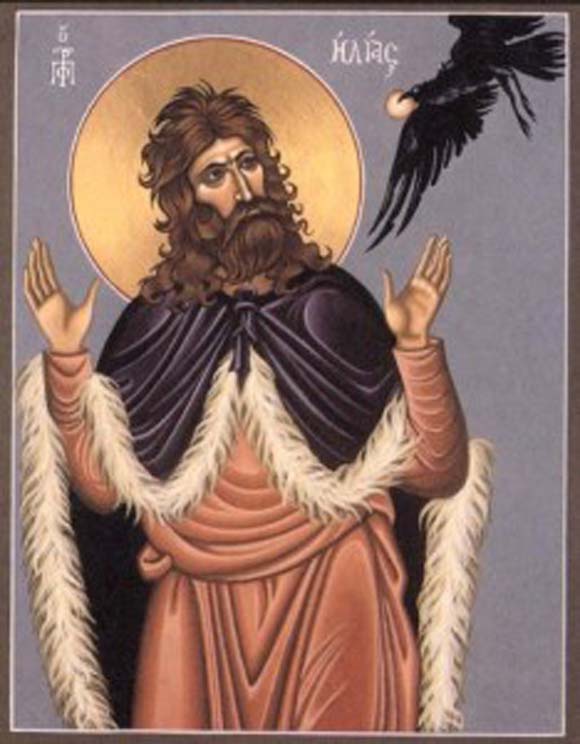
Advent – 19th December: Elijah, John, Jesus and the Coming of the Lord.
 It was a common belief among the Jews at the time of Jesus that the prophet Elijah would reappear and prepare the people for a visitation of the Lord in holiness. Elijah was thought to have been caught up into heaven at the end of his life (2 Kings 2:1-14). Since he had not died, he would be able to reappear before the Day of the Lord (See Malachi 3:23-24.) When he came, he would preach conversion, holiness, and reconciliation among the people.
It was a common belief among the Jews at the time of Jesus that the prophet Elijah would reappear and prepare the people for a visitation of the Lord in holiness. Elijah was thought to have been caught up into heaven at the end of his life (2 Kings 2:1-14). Since he had not died, he would be able to reappear before the Day of the Lord (See Malachi 3:23-24.) When he came, he would preach conversion, holiness, and reconciliation among the people.
 The God who comes at Christmas is a God of immense holiness and for whom only God can prepare us by grace but this can only happen with our co-operation. It is for these reasons that each Advent the Church represents John as Elijah, calling ‘prepare the way for the Lord’. Jesus made it clear that the people of his day in general did not heed the message to prepare for the Lord and they would thus reject Jesus too (Mk 9:11-13; Mt 17:9-13; Lk 7:29-30). Will we do any better? Are we responding to the message of John as we prepare for Christmas? Let us not be distracted or misled by cute cribs and beautiful babies! The conception of John points to the mercy of God and to God’s power to change hopeless human situations. Given hope by this, are we preparing for Christmas by a focus on the Lord, and, in the light of this, by moral conversion, by being reconciled to those around us, by acting justly, by humility of heart (Lk 3:7-18)? Or will we in effect ignore or reject Elijah, John and Jesus this year, however much religion, carols and festivity we get caught up in? Each of us must choose, and each of us must face the consequences of that choice. They may be a lot worse than losing our voice for several months …
The God who comes at Christmas is a God of immense holiness and for whom only God can prepare us by grace but this can only happen with our co-operation. It is for these reasons that each Advent the Church represents John as Elijah, calling ‘prepare the way for the Lord’. Jesus made it clear that the people of his day in general did not heed the message to prepare for the Lord and they would thus reject Jesus too (Mk 9:11-13; Mt 17:9-13; Lk 7:29-30). Will we do any better? Are we responding to the message of John as we prepare for Christmas? Let us not be distracted or misled by cute cribs and beautiful babies! The conception of John points to the mercy of God and to God’s power to change hopeless human situations. Given hope by this, are we preparing for Christmas by a focus on the Lord, and, in the light of this, by moral conversion, by being reconciled to those around us, by acting justly, by humility of heart (Lk 3:7-18)? Or will we in effect ignore or reject Elijah, John and Jesus this year, however much religion, carols and festivity we get caught up in? Each of us must choose, and each of us must face the consequences of that choice. They may be a lot worse than losing our voice for several months …


